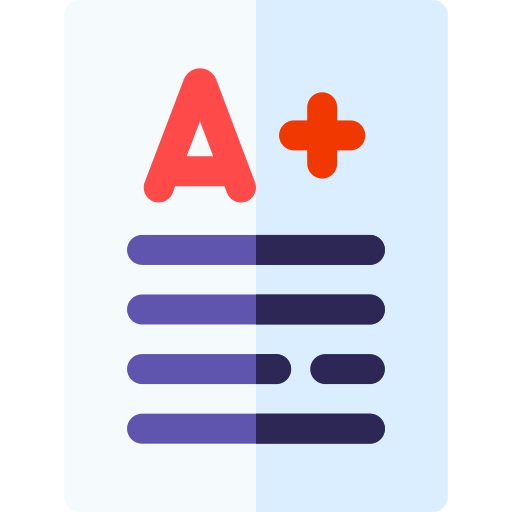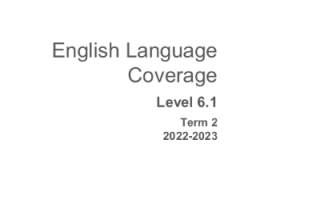بوربوينت قواعد ووظائف نهاية الفصل الثاني اللغة الإنجليزية الصف التاسع
The Coverage, Grammar and Functional Language Teaching Resource
The slides within this resource, although detailed, are designed to be used as a starting point for teachers to construct lessons around the language points that are explored here. The slides are intended to be used individually as a resource within a lesson and to be incorporated as part of instruction incrementally throughout the term to ensure that students have been exposed to all the language points in the mverage ahead of their end of term exam. Therefore. the PowerPoint should not be presented at a single event or in its entirety. Some functional language points may overlap with grammatical points in the coverage, and in that case, it is possible to combine slides. However, this resource should be
considered to be a collection of individual slides that teachers can use to enhance stucknts' learning
Within this document, you will find information about the coverage for this term. The lexis family that assessrnents will contain is mentioned as well as the particular grarnmatical and functional language points that will be tested in the exams at the end of this terrn. In the preparation sections, you will find examples and explanations for the grammatical and functional language points that will be assessed this term
The grammar preparation section has an example sentence that illustrates the grammatical point. It follows this with an explanation of the meaning of the example sentence. Next, the specific grammatical structure used within the example sentence is detailed followed by an explanation of the circumstances under whidl the particular structure is used. More example sentences using the structure are given at the end of the slide. In the functional language preparation section. there are examples of the particular language point followed by an explanation of how the particular are used. In the associated grammar section, language points that comprise the structure or can be used to in conjunction with the language
Many tourists come to this city. The emphasis is on the city, but not on who is going there
Passives: present simple passive
object + to be + past participle
Passive sentences are formed by the object of the sentence into the subject position. The passive voice is used when the focus is on the action being described rather than on who or what is performing the action
The dog is walked in the mornings
It's only in the UAE
The classroom is Gleaned every day
The speaker is talking about a specific person and describing where they live
Clauses and phrases: defining relative clauses
noun + (relative pronoun) + rest of dause
A defining relative clause gives us essential information about a noun (either. the subject or the object) within the sentence without which the sentence is not dear. Defining relative clauses are often introduced with the relative pronouns 'that', 'which' or 'who'
They're the people
The electric car is also the most expensive
This is the nature reserve that I want to visit
The person has lived in Paris for ten years and it is still their current home
Present time: present perfect continuous
have / has been + verb (- ing)
This example is describing an action that started in the past. The action is continuing in the present and is likely to continue in the future
They have been studyinq all day
She has- been- reading for a long time
He has been standing there waiting
Some children went to Dubai by car, but we don't know who drove them there The emphasis is on the fact that the children were taken to Dubai, not who drove the car
Past simple passive
was / were + past participle
The past simple passive is used when the person or thing that did the action is unknown, unimportant or not the focus of our interest The cat yesterday
She was.. TaKen to school on Monday
The mall opened yesterday. It built last year as soon as I get to the beach
The is talking about a future plan. When the sgmker to the beach, the first thing they will do is swim
Conjunctions: subordinating
clauæ (future with 'will') + when / as won + dause (present simple)
The sutxxdinating conjunctions 'when I as won as / link two clauses to talk about future plans and demonstrate the order of events. The dependent clause (using present simple) doesn't make sense without the dause (using future with will)
They will finish their homework they leave
Will you let me know when you see her
He plans to visit India es soon as he can
It was a beautiful lake and she saw camels drinking from the far edge
The brilliant blue ocean the small. sandy island
grammarvAdjectives, noun phrases
The city is loud and crowded, but the desert is quiet and peaceful
He learned to Spanish faster than his classmates
Travelling in a plane is much easier than travelling by bus
Functional language Comparing and contrasting
Assæiated grammar Comparative adjectives, comparative adverbs
In my opinion, Paris is more beautiful than New York
From my Of view, the journey was long
I'm certain that you will enjoy visiting Oman
Functional language Exprpsing opinion
Asscxiated grammar Pronouns. comparatives. intensifiers, modals. precxsitional phrases
What were you doing yesterday
I was visiting my grandparents in Ajman
We had dinner together in the evening
I used to spend the winter holidays in Georgia
I went to Georgia, where I visited the capital city. Then, I spent a few days hiking in the mountains
Functional language point. Describing past experiences and events
Associated grammar Wh - questions, past time (used to / vauld / past continuous), adverbs of time


